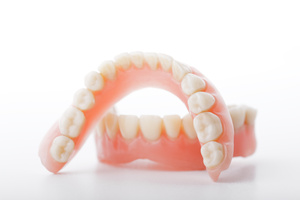Getting dentures can be a life-changing experience, offering restored functionality and confidence in your smile. However, as with any dental appliance, dentures require maintenance to ensure optimal fit and comfort. One crucial aspect of denture care is relining, a process often overlooked by wearers. In this blog post, we’ll delve into what to expect when getting your dentures relined, offering insights to ease any apprehensions and ensure a smooth experience.
Understanding Denture Relining
Denture relining is a procedure aimed at improving the fit of your dentures by reshaping the base to better conform to changes in your gum tissue. Over time, the bone and gum ridges that support your dentures can shrink or change shape due to natural aging, weight loss, or other factors. This can lead to discomfort, difficulty chewing, and even mouth sores.
During the relining process, your dentist will take impressions of your mouth to create a new base for your dentures. This ensures a snug fit that enhances comfort and functionality. Depending on the extent of adjustments needed, relining can be done chairside or in a dental laboratory.
Preparing for the Procedure
Before undergoing denture relining, it’s essential to communicate openly with your dentist about any concerns or discomfort you’re experiencing with your current dentures. They will conduct a thorough examination to determine whether relining is the best course of action or if other adjustments are needed.
It’s also crucial to follow any pre-procedural instructions provided by your dentist, such as refraining from eating or drinking for a certain period before your appointment. This ensures accurate impressions and a smoother overall process.
Aftercare and Adjustment Period
After your dentures have been relined, it’s normal to experience some initial discomfort or pressure as your mouth adjusts to the new fit. Your dentist may recommend over-the-counter pain relievers or prescribe medication to alleviate any soreness.
It’s essential to follow post-relining care instructions diligently, including maintaining good oral hygiene and scheduling regular dental check-ups. Your dentist may need to make additional adjustments to fine-tune the fit of your dentures as your mouth continues to change over time.
Denture relining is a vital aspect of denture maintenance that ensures optimal comfort and functionality. By understanding the process and what to expect before, during, and after the procedure, you can approach it with confidence and reap the benefits of a well-fitted smile. Don’t hesitate to consult your dentist if you have any concerns or questions about denture relining—it’s an essential step in preserving your oral health and overall well-being.
About the Author
Dr. Sam Antoon, a dedicated dentist since 1990, prioritizes patient relationships and ongoing education in his practice, Antoon Family Dental. Graduating from Southern Illinois University’s School of Dental Medicine, he fosters trust and open communication with every patient. A member of prestigious dental organizations including the American Dental Association and Texas Dental Association, Dr. Antoon values community engagement. Beyond dentistry, he finds joy in connecting with people during appointments and believes in the transformative power of a healthy smile.
If you have any questions about a denture reline, he can be reached at his website or by phone at (972) 640-6229.

